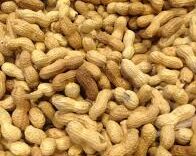 Leesburg, GA – Combustible dust is among the many hazards found in the last few years at Great Southern Peanut, LLC. The company was placed on OSHA’s Severe Violator Enforcement Program last fall for violations documented in 2014, 2016, and again in 2018.
Leesburg, GA – Combustible dust is among the many hazards found in the last few years at Great Southern Peanut, LLC. The company was placed on OSHA’s Severe Violator Enforcement Program last fall for violations documented in 2014, 2016, and again in 2018.
In 2018, the peanut processing plant was issued penalties of $309,505 for serious and repeated workplace safety citations. OSHA inspectors documented failures to develop and implement procedures for confined space entry, provide training on confined space hazards, and also cited Great Southern Peanut for not keeping reduced compressed air to a required level. Additionally, they were found to be in violation of workplace record-keeping requirements.
The finding of one serious violation and one repeat violation at Great Southern Peanut in the fall of 2018, landed it on OSHA’s Severe Violator Enforcement Program. According to OSHA’s Savannah Area Office Director, Great Southern Peanut “failed to adhere to the terms of a formal agreement to correct workplace hazards identified in a previous inspection, continuing to put employees at risk of serious injury.”
In 2016, the Georgia peanut producer was issued approximately $110,000 in fines for numerous repeated safety violations. OSHA’s 2016 inspection at Great Southern Peanut’s Leesburg (GA) facility was a follow up visit to check in the status of a series of citations identified in 2014. Federal workplace safety inspectors documented 13 repeated concerns, which included hazardous accumulations of combustible peanut dust as well as failure to provide protective guards on platforms and open-sided floors.
Their placement on the Severe Violators Enforcement list means that OSHA may inspect any Great Southern Peanut facility if it has reasonable grounds to believe that similar violations might be found. The severe violators program focuses on “recalcitrant employers that endanger workers by committing willful, repeat or failure-to-abate violations.”
Read more from original source.
We are here to help you.